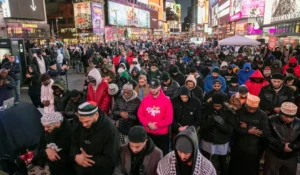H-1B Visa Worker Sues U.S. Employer Over Alleged Forced Labor and Unpaid Wages

An Indian technology worker has filed a lawsuit in the United States accusing his employer, Siri Software Solutions, of using the H-1B visa system to impose forced labor and withhold wages. The plaintiff, Amrutesh Vallabhaneni, claims that the company and its chief executive used his immigration status as leverage, threatening deportation to keep him under control and prevent him from leaving his job.
Vallabhaneni first came to the United States in 2015 on a student visa and later joined Siri Software Solutions after being promised sponsorship for an H-1B visa. According to the lawsuit, the company assigned him to contracts with government-approved wage rates but failed to pay the legally required amount. He alleges that for six months he was forced to finance his own salary, a practice described in the case as both wage theft and labor trafficking.
The complaint says the company used his dependency on visa sponsorship to maintain control over his employment. Because his legal right to stay in the country depended on the company, he was unable to leave despite unpaid wages and poor working conditions. The lawsuit further claims that repeated threats to revoke his visa left him financially and emotionally distressed.
Labor-rights specialist Jay Palmer, who has been involved in similar cases, said that many H-1B workers in the United States face comparable situations where the fear of losing legal status traps them in exploitative jobs. He compared the environment to a “survival game,” noting that the system’s structure allows some employers to misuse their power. Palmer also mentioned that in certain workplaces, hierarchical and discriminatory practices imported from abroad contribute to further exploitation.
The case highlights growing concerns about the vulnerability of foreign workers dependent on employer-sponsored visas. Advocates argue that the promise of future Green Card sponsorship often serves as a tool of coercion, discouraging victims from reporting abuse. Vallabhaneni’s experience, marked by irregular pay, lost health coverage, and mounting debt, reflects the severe impact such practices can have on migrant professionals.
Legal experts say the lawsuit could become an important test of accountability within the U.S. work-visa system. Its outcome may influence future policies aimed at protecting immigrant workers from coercion, wage theft, and other forms of exploitation while ensuring fair labor standards across industries.






